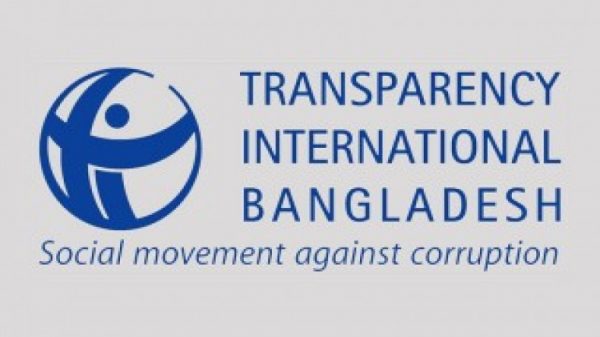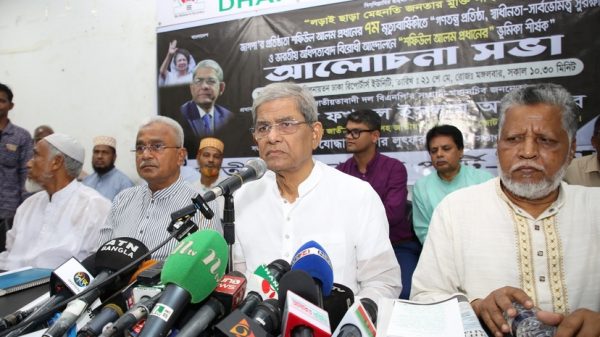Political influence playing role in electronic govt procurement: TIB

Shawdesh desk:
Transparency International Bangladesh on Monday said that political influence was still playing a role in the process of obtaining work orders even in the Electronic government procurement system was already launched in the country.
‘The competitive environment that was supposed to be created in e-GP has not been created due to nexus among political, administrative and contractors,’ said TIB executive director Iftekharuzzaman.
He came up with the observation at a press conference arranged at TIB office in Dhaka on ‘E-Government procurement in Bangladesh: A trend analysis of competitiveness (2012-2023)’.
Iftekharuzzaman also said e-GP – an online platform for conducting all public procurement activities — is an important and positive step of the government, but the system is yet to play an effective role or give good outcome due to the unholy nexus among the officials concerned with contractors.
He said the competitive procurement could not be ensured in the e-GP system as around 75 to 100 per cent work orders were getting through single bids.
‘A group of contractors grab the market here as well,’ he added.
According to the TIB analysis, collusion and syndication are still the main obstacles to ridding the procurement process of corruption.
It said despite being introduced 12 years ago, e-tendering in Bangladesh covers only 20-35 per cent of government procurement and nearly all high value contracts are excluded from its scope.
The majority of e-procurement contracts (99 per cent) fall within the Tk 1 to Tk 25 crore value range.
It said that ten ministries and divisions account for 92 per cent of the total number of works and nearly 97 per cent of e-contract value, with the Local Government Division being the highest spender.
The top 5 per cent of contractors control nearly 30 per cent of e-contracts, and their market dominance is on the rise.
TIB said that E-procurement saw an overall increase in the average number of bids, but the Open Tendering Method received only 3.54 bids per tender on average, while Limited Tendering Method attracts 47.75 bids per tender.
The 10 per cent price cap in the OTM promotes LTM, which requires no prior experience, is distorting potentials of market competition
Approximately 46 per cent of contracts receive fewer than 4 bids overall, with 65 per cent of OTM contracts having less than 4 bidders, indicating low competition, it said.
About 20.73 per cent of all contracts are single bids, meaning one in five contracts is awarded through a single bid.
In OTM contracts, 26 per cent are single bids, highlighting the prevalence of single-bid awards,
TIB findings also said local contractors secure around 70 per cent of government contracts, while non-local contractors receive the remaining 30 per cent.
The total value of single-bid contracts amounted to 60,000 crore during the period, representing 15% of the total e-contract value.
There are 92 procuring entities where a significant 75 per cent of tenders resulted in single bids and 416 contractors had a single-bid percentage of at least 75 per cent, it also added.























Leave a Reply